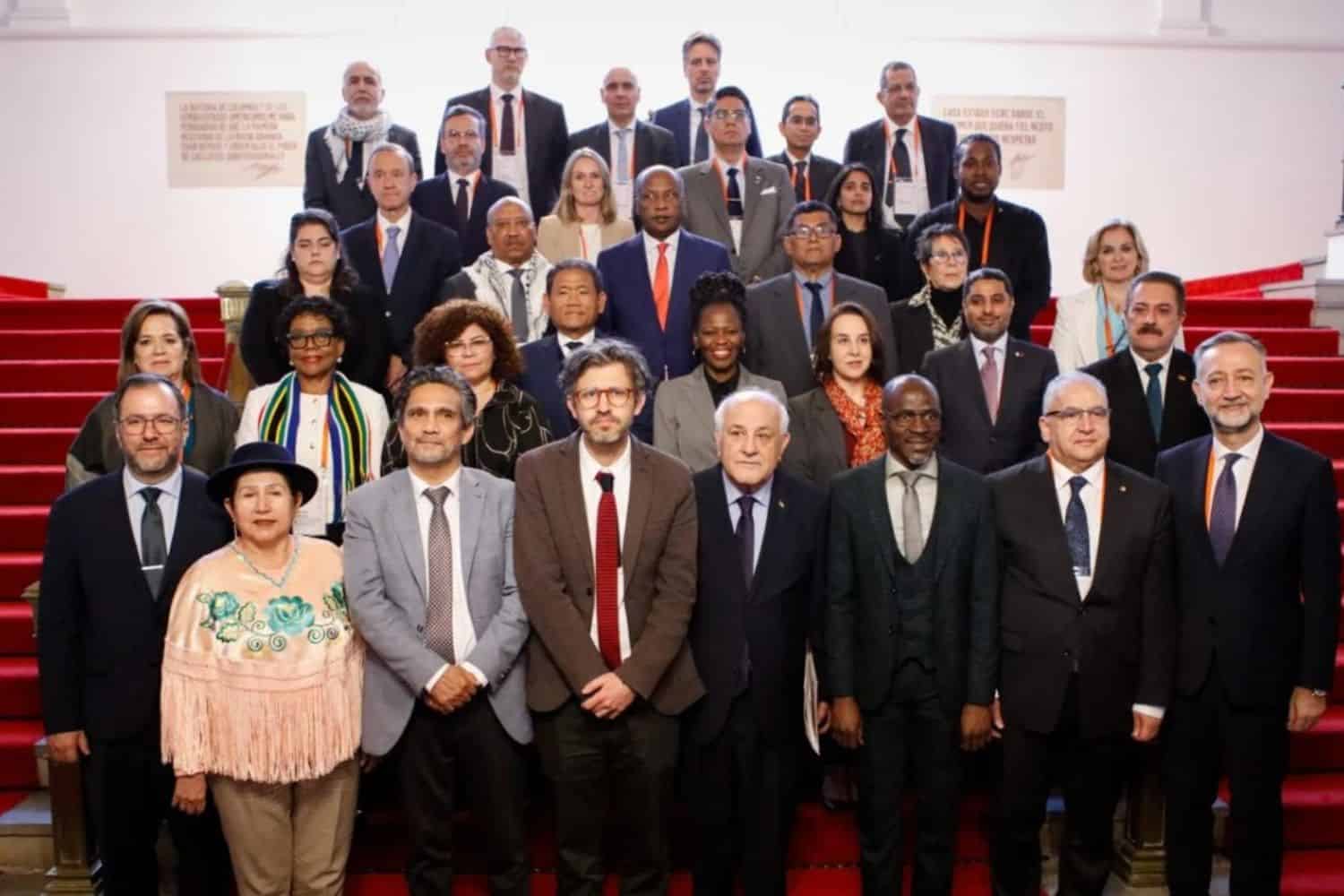They met to coordinate diplomatic and legal action to counter what they describe as "a climate of impunity" enabled by Israel and its powerful allies.

A coalition of 30 countries from across Africa, Asia, Europe, and the Americas has agreed to a series of unprecedented measures aimed at halting what they described as an ongoing genocide in Gaza and reasserting the primacy of international law.
The announcement came as part of an “emergency summit” in the Colombian capital, Bogotá, co-hosted by the governments of Colombia and South Africa as co-chairs of The Hague Group.
Genocide
They met to coordinate diplomatic and legal action to counter what they describe as “a climate of impunity” enabled by Israel and its powerful allies.
Many of the participating nations have described the violence as genocide against the Palestinians.
In the most ambitious multilateral action since the start of the Gaza genocide 21 months ago, the coalition of cross-regional states agreed to six coordinated diplomatic, legal and economic measures to restrain Israel’s assault on the Occupied Palestinian Territories and defend international law at large.
Resolution
That resolution called on all states to take effective action on Israel’s violations of international law — including accountability, sanctions, and cessation of support — within one year of adoption.
“What we have achieved here is a collective affirmation that no state is above the law,” said South African Minister of International Relations and Cooperation, Ronald Lamola.
“The Hague Group was born to advance international law in an era of impunity. The measures adopted in Bogotá show that we are serious — and that coordinated state action is possible.”
ALSO READ: Dirco calls for global action to stop Israel’s ‘genocide’ in Gaza [VIDEO]
Measures
On the second and final day of an emergency summit, the twelve participants—Bolivia, Colombia, Cuba, Indonesia, Iraq, Libya, Malaysia, Namibia, Nicaragua, Oman, Saint Vincent and the Grenadines, and South Africa—committed to the following measures:
- Preventing the provision or transfer of arms, munitions, military fuel, related military equipment, and dual-use items to Israel
- Preventing the transit, docking, and servicing of ships at any port where there is a clear risk of the vessel being used to carry the aforementioned items to Israel
- Preventing the transportation of such items aboard vessels flagged in participating nations;
- Launching an urgent review of all public contracts to prevent public institutions and funds from supporting Israel’s illegal occupation of Palestine and entrenching its unlawful presence
- Complying with obligations to ensure accountability for the most serious Israeli crimes under international law
- Supporting universal jurisdiction mandates in national legal frameworks and judiciaries to ensure justice for victims of international crimes committed in Palestine.
The future
Varsha Gandikota-Nellutla, executive secretary of The Hague Group, said the conference marked a turning point not just for Palestine, but for the future of the international system.
“For decades, states — particularly in the Global South — have borne the cost of a broken international system. In Bogotá, they came together to reclaim it — not with words, but with actions”.
Israel’s war
More than 58 000 people have been killed since Israel launched the assault in October 2023, according to Palestinian health authorities.
Israeli forces have also imposed several total blockades on the territory throughout the war, pushing Gaza’s 2.3 million residents to the brink of starvation.
ALSO READ: Israeli strikes kill children collecting water in Gaza






